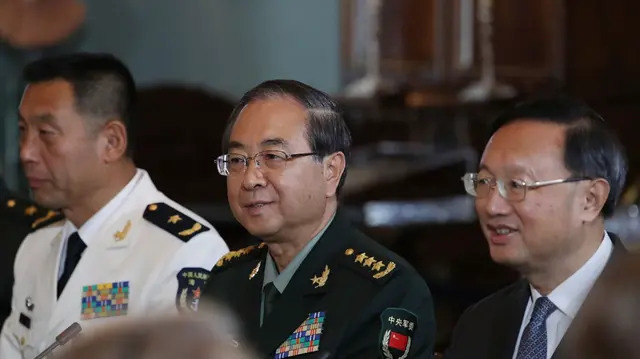The Ninth Ministerial Conference of the World Trade Organization (WTO) is set to open from Tuesday to Thursday, with trade chiefs of the WTO's 159 members gathering to discuss global trade issues and bring forward the long-stalled Doha Round talks.
Major target for this year's meeting will be sealing a package of global trade agreements that would mainly cover trade facilitation, development and agriculture, which would pave way for future completion of the Doha Round.
The following is a brief introduction to the WTO ministerial conference:
The Ministerial Conference is the top decision-making body of the WTO, which usually meets every two years. It brings together all members of the WTO, all of which are countries or customs unions. The ministerial conference can make decisions on all matters under any of the multilateral trade agreements.
Since the establishment of the WTO in 1995, eight ministerial conferences have been held.
On Dec. 9-13, 1996, in Singapore, the First Ministerial Conference examined issues related to the work of the WTO's first two years of activity and the implementation of the Uruguay Round Agreements.
On May 18-20, 1998, in Geneva, the Second Ministerial Conference reviewed the implementation of WTO agreements and made preparation for the launch of a new round of trade talks.
From Nov. 30 to Dec. 3, 1999, in Seattle, the United States, the Third Ministerial Conference ended in failure, with massive demonstrations and police and National Guard crowd control efforts drawing worldwide attention.
On Nov. 9-14, 2001, in Doha, Qatar, the Doha Round was launched at the Fourth Ministerial Conference, which also approved the joining of China, which became the 143rd member.
On Sept. 10-14, 2003, in Cancun, Mexico, the Fifth Ministerial Conference was held with the aim to forge an agreement on the Doha Round, but the talks broke down without progress.
On Dec. 13-18, 2005, in Hong Kong, China, the Sixth Ministerial Conference made progress on the phasing out of all agricultural export subsidies, termination of cotton export subsidies and market access for goods from the Least Developed Countries. It was considered vital for the Doha Round negotiations to move forward.
From Nov.30 to Dec.2, 2009, in Geneva, Switzerland, the Seventh Ministerial Conference declared that WTO ministers wanted to conclude the Doha Round talks quickly and agreeing to extend " moratoriums" on electronic commerce and intellectual property.
On Dec.15-17, 2011, in Geneva, Switzerland, the Eighth Ministerial Conference adopted a waiver to enable developing and developed-country members to provide preferential treatment to services and service suppliers of least-developed country members. Russia became the WTO's 154th member.
On the other hand, the Doha Round of trade talks was launched by the World Trade Organization (WTO) at its ministerial conference held in Doha, Qatar in 2001, with an aim to help poor nations hurdle barriers in global trade and prosper through the free flow of goods.
Main areas of the Doha Round negotiation are agriculture, non- agricultural market access, services, intellectual property, trade and development, trade and environment, trade facilitation, WTO rules, and dispute settlement understanding.
Initially called the Doha Development Agenda, the Doha Round is the successor of the 1986-1994 Uruguay Round of multilateral trade talks. Agriculture and services are "built-in" agenda as trade barriers in these two sectors are considered particularly hard to eliminate.
The initial plan was to wrap up the Doha Round in 2005 but failure to reach a deal pushed back the schedule. Over the past years, new deadlines were set and missed. In July, 2008, the Doha Round came to a stall after nine days of intensive negotiation in Geneva over wide disparity in opinions on farm subsidies, tariffs, and non-agricultural market access between developed countries and developing ones.
Since then, though trade talks have been resumed in 2009 in face of the global financial crisis, little progress has been made at the WTO negotiation table.
The 9th WTO Ministerial Conference is seen as a great opportunity to revive the 12-year-old negotiation and break the stalemate by signing a less ambitious deal that covers mainly trade facilitation, development and agriculture. If successful, the Bali package would pave way for finalizing other parts of the Doha Round in future negotiations.
 简体中文
简体中文





